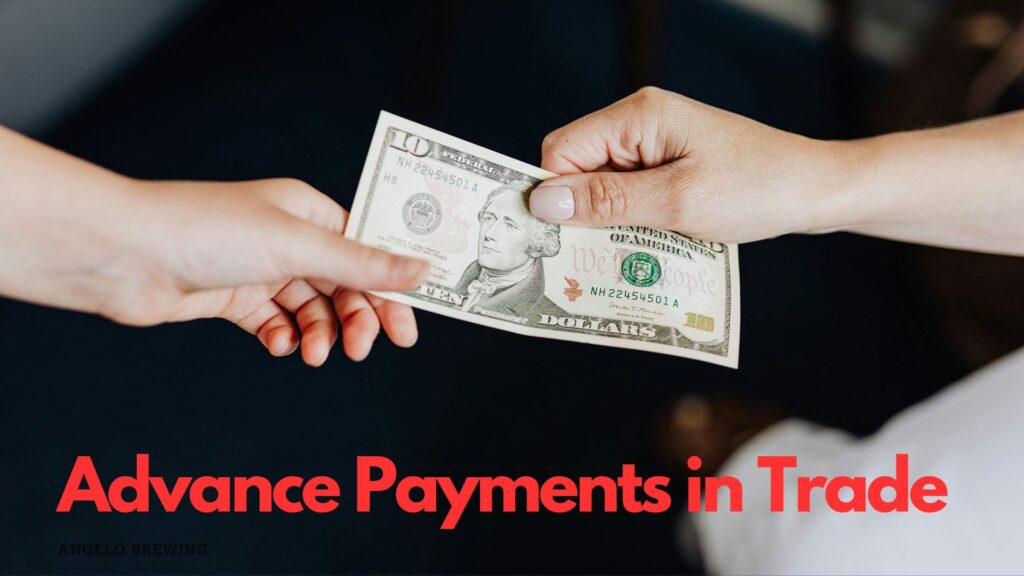In the dynamic world of international trade, businesses often encounter the need for advance payments as part of their transactions. Understanding the nuances of advance payments is crucial for both buyers and sellers to navigate the complexities of global commerce successfully. This post aims to shed light on advance payments in trade, covering key concepts, benefits, potential risks, and frequently asked questions.

Table of Contents
What Are Advance Payments?
Advance payments in trade refer to funds remitted by a buyer to a seller before the delivery of goods or services. This financial arrangement is prevalent in various industries, especially in international trade where distance, cultural differences, and diverse legal systems can pose challenges.
Common scenarios requiring advance payments include:
- Due to concerns about ‘country risk,’ the seller might hesitate to dispatch goods to the buyer’s location before receiving payment.
- Buyer may agree to advance payments when dealing with new or unestablished business relationships to build trust between them.
- In some instances, the seller may lack the financial resources necessary to purchase or prepare the goods for shipment.
- The buyer might be comfortable with both its association with the seller and the credit and country risks associated with that particular seller.
Advance payment is the settlement method with lowest risk for the seller, but with highest risk for the buyer.
Benefits of Advance Payments for Sellers
Advance payments in trade offer a range of advantages for sellers, enhancing their position in various aspects of business transactions. Here are key benefits for sellers when opting for advance payments:
- By receiving an advance payment, sellers can mitigate the risk of non-payment or delayed payment. This financial security allows them to proceed with confidence.
- Advance payments provide sellers with immediate working capital, which can be crucial for covering production costs, purchasing raw materials, and sustaining day-to-day operations. This liquidity facilitates smoother business operations and supports growth initiatives.
- Advance payments act as a tangible commitment from buyers, signaling their seriousness about the transaction. This commitment fosters trust between parties, laying the foundation for a positive and reliable business relationship.
- In the realm of international trade, where buyers and sellers may be located in different countries with varying legal systems, advance payments play a crucial role in facilitating transactions. The complexities of cross-border trade can be daunting, and advance payments provide a level of security and assurance, reducing the risks associated with distant and unfamiliar business partners.
Risks of Advance Payments for Buyers
Engaging in advance payments in trade introduces various risks for buyers, which necessitate careful consideration and strategic management. Here are key risks associated with advance payments for buyers:
- A primary concern for buyers making advance payments is the risk of non-delivery or significant delays in receiving the ordered goods or services. This poses a considerable financial risk as the buyer has already made payment but has not received the expected deliverables.
- Buyers face the risk of receiving substandard or defective goods, especially when advance payments are made before the inspection of the products. The lack of payment leverage may hinder the buyer’s ability to negotiate or demand improvements in product quality.
- Advance payments expose buyers to the financial viability of the seller. If the seller encounters financial difficulties or goes bankrupt after receiving the advance payment, the buyer may face challenges in recovering the funds, leading to potential financial losses.
- In the event of disputes or disagreements between the buyer and seller, the buyer may have limited recourse if an advance payment has already been made. Legal and logistical challenges may arise when attempting to recover funds or seek resolution.
In conclusion, while advance payments offer certain benefits to sellers, buyers must carefully evaluate and manage the associated risks. Implementing due diligence, conducting thorough vendor assessments, and exploring alternative payment methods can help buyers navigate the challenges and ensure more secure and successful trade transactions.
Frequently Asked Questions (FAQs)
How can sellers ensure the quality and timely delivery of goods after receiving an advance payment?
A: Sellers can implement several measures to ensure the quality and timely delivery of goods. These include:
- Establishing clear quality standards in the contract.
- Providing regular updates on the production process.
- Utilizing reputable shipping and logistics partners.
- Allowing buyers to inspect goods before finalizing the transaction.
- Implementing penalties for delays or failure to meet quality standards.
Are there alternatives to advance payments in international trade?
A: Yes, there are alternatives to advance payments, depending on the level of trust between parties and the nature of the transaction. Some alternatives include letters of credit, open account terms, and documentary collections. Each method has its advantages and considerations, and the choice depends on the risk appetite and preferences of the parties involved.
How do currency fluctuations impact advance payments?
A: Currency fluctuations can impact the value of advance payments, especially in international trade where parties use different currencies. To mitigate this risk, parties can include provisions in their agreements to address currency fluctuations or choose payment methods that minimize exposure to exchange rate fluctuations. Regular monitoring of exchange rates and timely adjustments to the payment terms can also help manage this risk.
